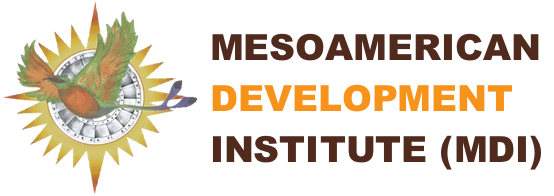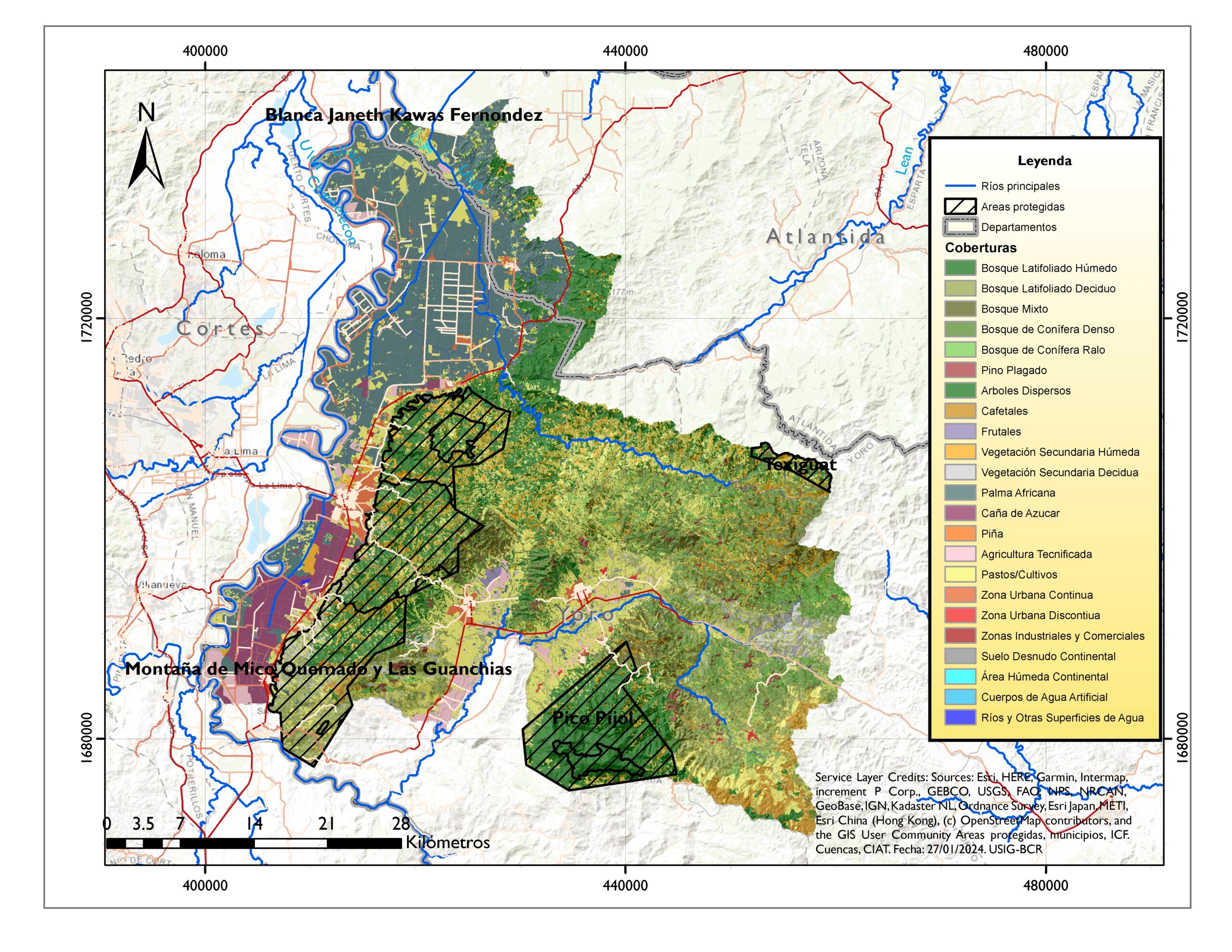The Mesoamerican Development Institute (MDI) was invited to participate in an analysis of ecosystem integrity for the region of Honduras that includes the Mico Quemado Wildlife Refuge, Pico Pijol National Park, and lands that connect the two protected areas. The MDI team, including coffee farmers with deep knowledge of these regions, joined fellow Park Co-Managers, NGO’s, municipalities, and the Honduran Forest, Park, and Wildlife Services in the analysis facilitated by the US Agency for International Development (USAID) as part of their recently cancelled Climate Adaptation program for the country.
The Ecosystem Integrity Index analysis, an assessment of the ecosystem capacity to sustain wildlife and ecosystems services, was produced by consensus of participants. The Mico Quemado—Pico Pijol region as a whole was rated in “critical condition.” The individual ecosystems or landscapes analyzed, and their ecosystem indices are provided in the table below. The buffer zone of Pico Pijol National Park was determined to be in “poor condition.”

In addition to the Ecosystem Integrity Analysis, participants were asked to assess the threats to these ecosystems/landscapes by scope, severity, and irreversibility. The Mesoamerican Development Institute was asked to focus primarily on threats to forest habitat and water resources for the Mico Quemado—Pico Pijol region.
This assessment found the main drivers of deforestation differ by elevation:
- Expanding coffee production is the primary driver of deforestation at coffee elevations (900 Meters and above), as well as a primary threat to degradation of watersheds, rated equal to water contamination in overall threat to water resources.
- In the lower elevations, humid forest, and especially dry forest, are most threatened by expanding urban development through agricultural and livestock production given the favorable topographic conditions and fertile soils.
Additional threats were assessed including forest fires, illegal road openings, illegal urban development, advancing agricultural frontier, cattle ranching, solid waste pollution, illegal logging, and illegal mining.
To read the full report, visit our library.


